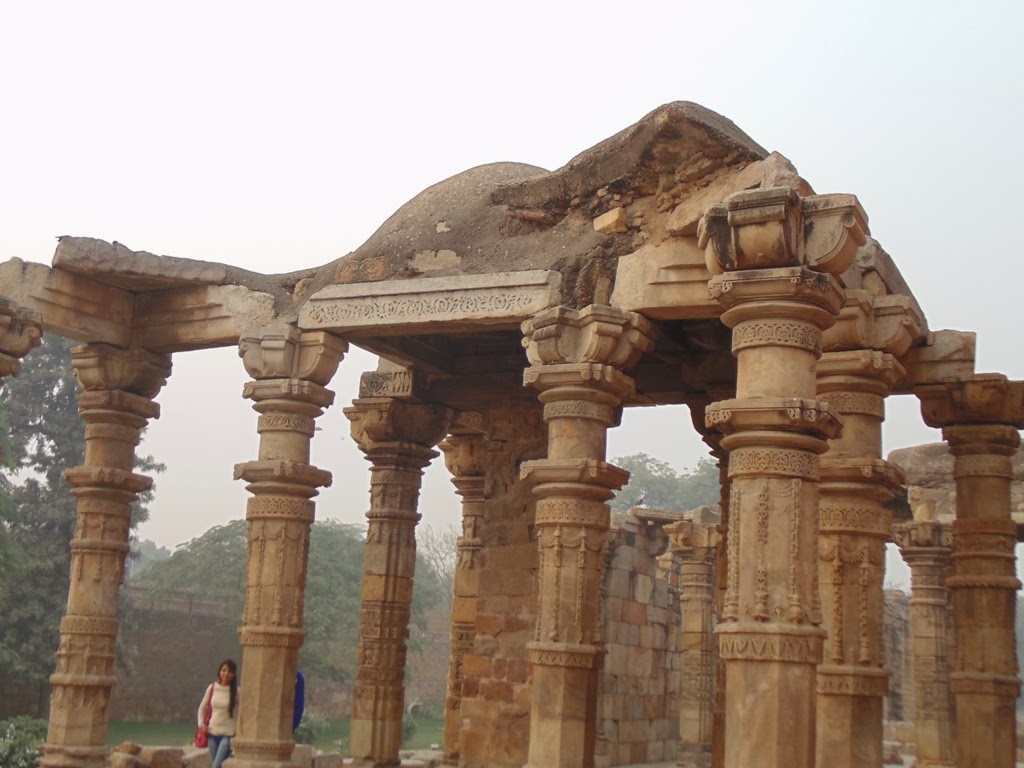Recently team DesignGreenIndia was at a UNESCO world heritage site – Qutub complex, New Delhi. Qutub complex is worldly famous for housing Qutub Minar, a brick minaret built in 1192 AD during mughal era in India. Qutub Minar was built by Qutb-ud-din-Aibak to mark victory of Mohammed Ghori over Rajput king Prithviraj Chauhan. 72.5 m tall Qutub Minar is counted amongst world’s tallest minarets.
Other structures at
Qutub complex include tombs, madarsas (educational institutes), Jain temple
ruins and a mughal garden.
Mughal garden at Qutub
complex is easily distinguished due to its trademark Persian style design.
Mughals’ idea of garden is based on description of heaven in Quran which is
ultimate place of peace and pleasure filled with birds, fruit trees, fragrant
flowers, water and shade. Four quadrants, canals, fountain and pool are typical
features of a mughal or mogul garden. Taj Mahal, Mehatab Bagh, Humayun’s tomb are
some famous mughal gardens in India.
However mughal garden
at Qutub complex is not much big and celebrated but it is noteworthy as
Qutub complex marks the arrival of Mughal architecture in India.
Have a look on Ranthambhore National Park, India.
Have a look on Ranthambhore National Park, India.











No comments:
Post a Comment